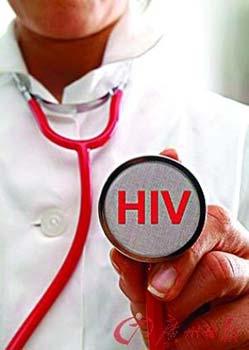Source: Xinhua
02-25-2009 14:21
Special Report: Tech MaxBy Daniel Ooko
NAIROBI, Feb. 24 (Xinhua) -- Health experts from East Africa kicked off a two-day meeting in Nairobi on Tuesday by calling on regional governments to stem the spread of new HIV infections.
 |
| Health experts from East Africa kicked off a two-day meeting in Nairobi on Tuesday by calling on regional governments to stem the spread of new HIV infections. (File Photo) |
The three-day East African Community (EAC) conference dubbed "HIV prevention think tank" is discussing approaches that should be scaled up due to their impact, and those that should be given less prominence and funding.
Speaking during the opening of the meeting, the UN program on HIV/AIDS (UNAIDS) regional director for Eastern and Southern Africa Mark Stirling urged the countries to formulate new strategies to reduce the rate of new HIV/AIDs infections by half by next year.
"We need to forge synergies as a region in line with the new trend of forming global alliances in the fight against Aids as we endeavour to realize universal access to services," Stirling said.
Kenya's Special Programmes Assistant Minister Mohamud Ali said HIV/AIDS remained the biggest threat to the socio-economic development of the region.
"In Kenya for example, more than 1.4 million people are living with HIV, with the country's HIV prevalence rate standing at 7.8 percent," Ali told the forum, which is the first of its kind in the region and is being held by the EAC in partnership with the UN program on HIV/AIDS.
He said as the East African region makes great strides in trade and other related matters, "our countries should expand cooperation to fight against HIV and AIDS as well as other ailments that face us."
Ali said Kenya was now developing a new HIV and AIDS strategic plan that is expected to become operational in July.
Currently, more than four million adults and close to 420,000 children in the region are now living with HIV while more than 2.7 million children have been orphaned by the disease. The meeting seeks to build political commitment in fighting HIV and AIDS in the EAC states.
Last week, Kenya doctors sounded an alert over the high number of new HIV infections among married couples in particular. They said the trend was likely to constrain treatment.
At least between 55,000 to 100,000 new HIV infections are reported on an annual basis mostly among married couples, posing a serious challenge to the provision of anti-retroviral drugs, said Nicholas Muraguri, the director of the National AIDS and Sexually Transmitted Diseases Control Programme (Nascop).
"In a bid to address the high level of new HIV infections, the Public Health ministry has launched a campaign dubbed Concurrence campaign, which aims at promoting fidelity in marriages and encouraging couples to know their HIV status," said Muraguri.
The proposed plan will target the provision of quality integrated services at all levels to prevent new HIV infections, reduce HIV-related illness and deaths and mitigate the effects of the epidemic on households and communities.
EAC Health Coordinator Stanley Sonoiya said that in the past, there had been too much emphasis on treatment rather than prevention.
"From what we have seen I think we have to go back to the basics, which says prevention is better than cure. The economies of the East African countries cannot sustain the treatment," said Sonoiya.
He added that the meeting's agenda would include the creation of political awareness of steps that required cooperation between EAC partner states. "It is also an important element of the EAC member states on the 2005 declarations on achieving universal access to HIV prevention, treatment and care," he said.
The meeting has drawn participants from Burundi, Kenya, Rwanda, Uganda, United Republic of Tanzania and Zanzibar.
-- Click for more news in Tech Max >>
